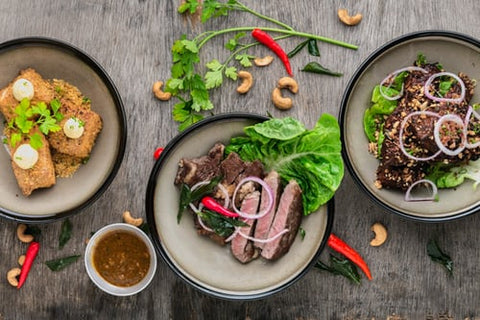Exactly what type of insurance is required for a food truck is debatable.
No matter if you're purchasing or leasing a food truck, it's critical to think about the types of insurance you'll need to adequately cover your business and vehicle against liability as well as theft and crashes. It is important to have the following forms of insurance coverage for mobile food enterprises, such as food trucks, ice cream trucks, and catering trucks.
1. General Liability Insurance (sometimes known as general liability insurance).
It is important to get food truck general liability insurance in order to protect your mobile company from mishaps and accidents involving third parties that may occur when your vehicle is parked yet open for business.
General Liability Insurance (GLI):
Lawsuits concerning product liability, such as those involving foodborne diseases, food poisoning, burns from hot food, cuts from glassware or metal utensils, and contaminated food polluted with debris or allergies
Customer slip and falls on pavement, ice, or standing water around your food truck, as well as any other injuries to customers or passersby on your property are all grounds for a premise-related claim.
Advertising cases, such as personal harm, libel, and slander in marketing efforts, are becoming increasingly common (intentional or unintentional).
Property damage lawsuits and fines, such as those involving damage to someone else's building or property caused by your truck, are very common in the United States.
If you are sued, you will be responsible for legal expenses and representation in court, regardless of the outcome.
It does not cover the following:
Incidents that occur in the workplace
Accidents involving automobiles
Incidents that occur when your truck is traveling from one area to another
Food truck operators are required to carry a minimum of a ,000,000 general liability insurance coverage in order to do business with most vendors, landlords, and commissary cooks; in addition, they will frequently request to be added as an extra insured on your policy.
2. Commercial Automobile Liability Insurance
It is mandatory to get commercial auto insurance on any vehicles used for business purposes in order to safeguard against liabilities and damage while in transit. Damage to your vehicle and things permanently linked to it by bolts, pipes, or gas lines are covered under the business auto insurance plans included with your policy.
Coverage for Commercial Automobiles:
Vehicle collision coverage pays for damage to the vehicle and permanently fixed components that occur as a consequence of a collision with a barrier or another automobile.
Liability insurance protects against harm to individuals while the vehicle is in motion as well as damage to property while the vehicle is in transit.
Comprehensive coverage: Provides coverage for occurrences that are not the fault of the insured, such as theft, fire, vandalism, and natural or weather-related disasters.

It does not cover the following:
Accidental injuries and property damage caused by your car while it is parked
Smaller cars are occasionally covered by personal auto insurance plans. Before choosing a personal policy over a business coverage, be sure to verify with your insurance provider and your local authorities.
3. Insurance for the contents of the house
It is possible to get contents insurance for goods that are in your food truck but are not permanently attached to the vehicle. Contents insurance is also referred to as contents coverage insurance or company property insurance in some instances. Actual cash value policies (which would give the cost of the product less depreciation) and replacement cost value policies (which would provide the cost of the product plus depreciation) are available to business owners (which covers the cost of a new product). Actual cash plans will have a lower premium than replacement policies, which will be more expensive.
Coverage for personal belongings:
Damage to property as a result of a collision
Items that have been vandalized
Items that have been stolen
Items that are not kept in the vehicle are called "extras."
Items that have been damaged by weather or fire
It does not cover the following:
Items that have been attached to the truck
It is critical to combine commercial auto insurance with contents coverage in order to ensure that all of your food truck's goods are covered by your insurance policy.
Workers' Compensation Insurance is a fourth option.
Workers' compensation is required in order to provide your employees with income and medical benefits in the event that they become ill or injured while on the job.
Workers' Compensation Insurance:
An employee is injured while on the job.
Illnesses caused by the job among employees
If an employee is injured on the job, the employer is responsible for their medical treatment, costs, medicines, and rehabilitation.
Payments for long-term or permanent disability received by employees
Death benefits are provided to the family members of employees who die as a result of their jobs.
It does not cover the following:
Liabilities arising from transactions with consumers
Injuries or diseases that are not connected to job
Workers' compensation is mandated by OSHA in most states for food trucks, and it is strongly recommended in the remaining states to guarantee that your business is completely covered in the event of an accident. Listen to "Marketing Food Online Food Entrepreneur" on Spreaker.
